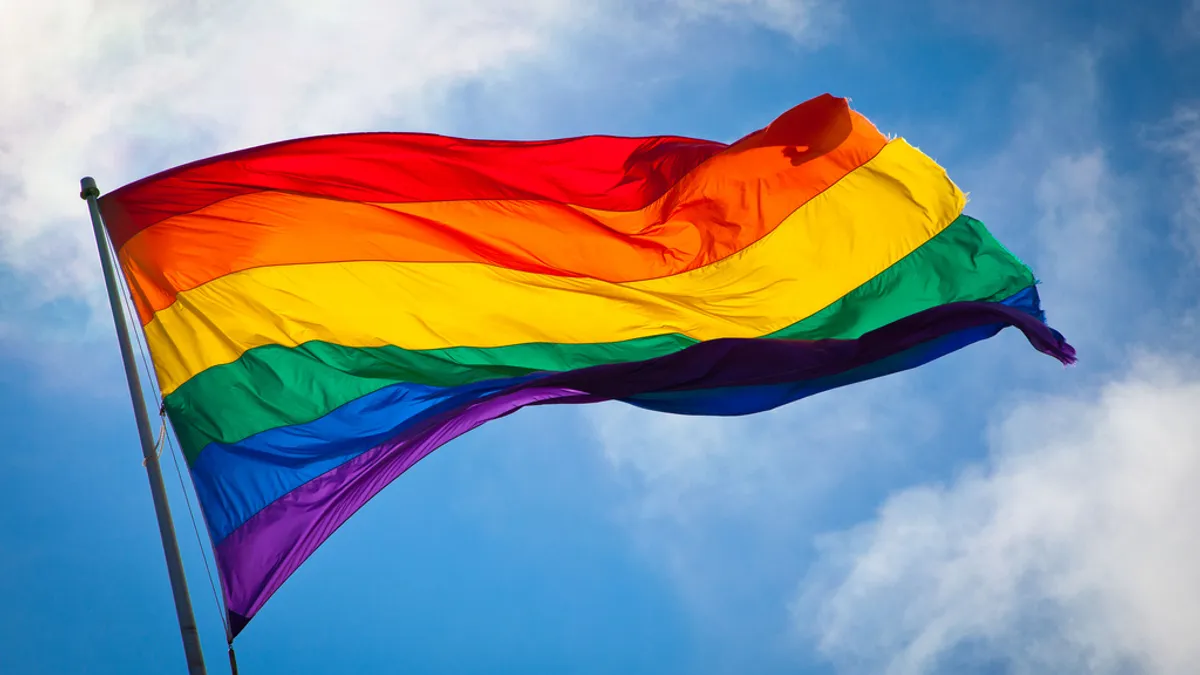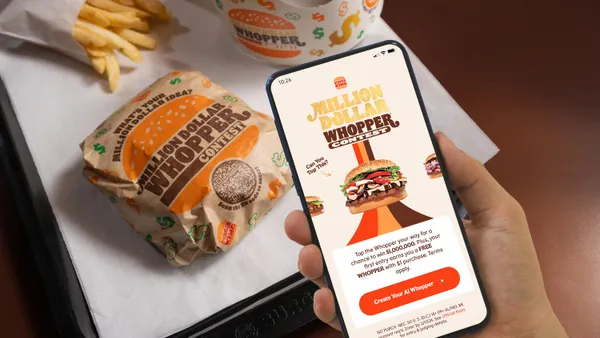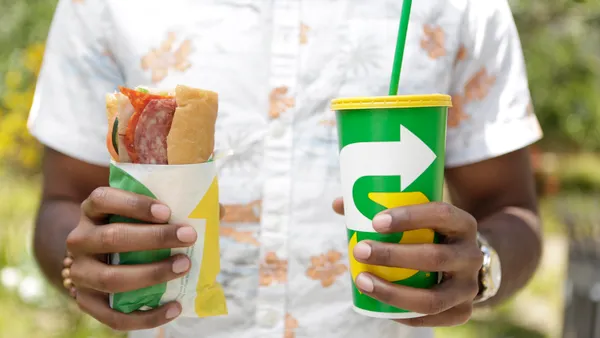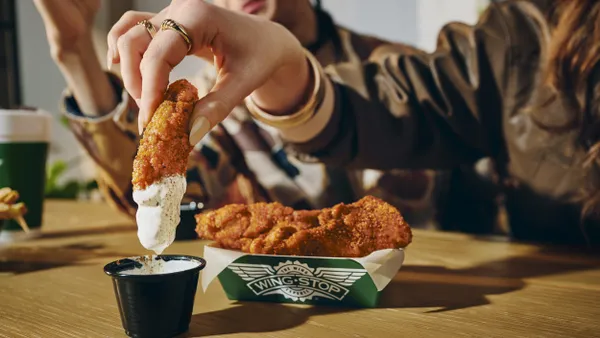Dive Brief:
- Salad chain sweetgreen is launching its first national video and print marketing campaign called "Follow Your Greens" this week, sweetgreen told Restaurant Dive in an email. The series is comprised of 15- and 6-second video spots designed for social media that feature people pausing their activities to explain to the camera what they order from the chain and why. The campaign will be live throughout the summer.
- Sweetgreen has also unveiled a new marketing campaign in honor of LGBTQ + Pride month starting in June that underscores the purpose of inclusivity, according to Fast Casual. The restaurant is partnering with Covenant House to promote awareness for homeless LGBTQ+ youth, which accounts for 40% of all homeless youth across the country. Sweetgreen plans to donate $1 from each bowl purchased on June 2 up to $25,000 to support the program.
- The restaurant has also printed a limited-edition series of Pride T-shirts for each team member, and some available for purchase, with proceeds going toward Covenant House.
Dive Insight:
In today's highly charged political climate, restaurant brands aren't shying away from taking hard stances on social issues. And the tactic, in large part, is paying off. Diners are hungry for mission-focused brands that put their dollars toward reputable causes, and are often willing to pay more for a meal from an activism-focused chain. Studies show that companies consumers view as having a positive impact are growing twice as fast as other businesses.
In recent years, Pride Month has become a popular event for brands to align themselves with. fresh&co will roll out new menu items, The Love Salad and The Rainbow Sandwich, on June 4 during Pride Month and will also donate 20% of sales from these items to the nonprofit organization NYC Pride. During June, employees will wear hot pink shirts with slogans of "just made. just for everyone" to highlight inclusivity. The chain will also launch a video with interviews of people sharing what love means and how we can demonstrate it to one another. In 2014, Burger King launched a new ad campaign to coincide with the Pride Parade in San Francisco focusing on equality and inclusion called the "Be Your Way" campaign, putting a spin on its 40-year-old "Have it Your Way" marketing slogan. It also unveiled a "Proud Whopper," which came wrapped in rainbow paper with the phrase "we are all the same inside."
These types of marketing blitzes are particularly successful with younger demographics, according to a Google Consumer Survey about Burger King's efforts. Nearly half of consumers under the age of 24 will be more likely to support a company if they see an equality-focused advertisement. The rest of the age groups polled were only 30% more likely to back that brand in comparison. There's also good reason for restaurants to focus on inclusiveness considering that it's the most diverse workforce in the U.S., with ethnic and racial minorities making up half of all hourly employees and women filling over half of job roles.
Tender Greens, a rival salad and sandwich shop, has also focused on advertising related to diversity. This month, it announced plans to fill half of its leadership positions with women by 2020, including executive chefs, sous chefs and restaurant management positions.
Shake Shack took a similar stride toward telling consumers about its stance on inclusion through its "All-In" initiative. During 2018, 60% of the company's promotions were awarded to women. The burger chain boasts a 100% score from The Human Rights Campaign for its 2019 Corporate Equality Index assessment.
Meanwhile, McDonald's has rolled out a number of diversity-focused initiatives and is tapping technology through augmented writing system to help curb bias in job descriptions.
The power of this marketing strategy is also illustrated by the consumer backlash over brands who distance themselves from these issues, or actively support non-inclusion. Earlier this year, for example, San Antonio Airport banned Chik-fil-A in response to a report that the chain donated $1.8 million to groups that discriminate against the LGBTQ+ community. The chicken-focused chain commented on the ban as disappointing and insisted that the brand wants everyone to feel welcome at its stores.
Whether or not consumers will tire of brand activism, especially when it comes to monetizing events like Pride, is another question. If diners perceive that a brand's support of the LGBTQ+ community is only a month-long deal, they could reject the business for being disingenuous.













